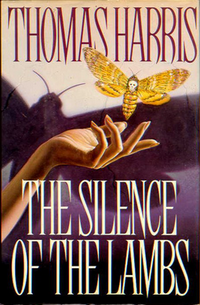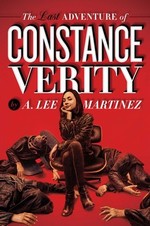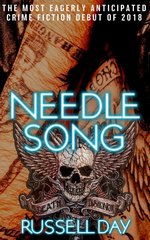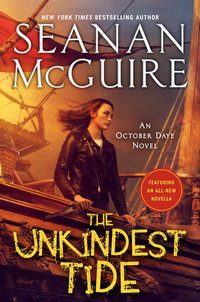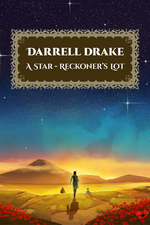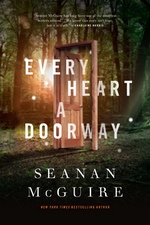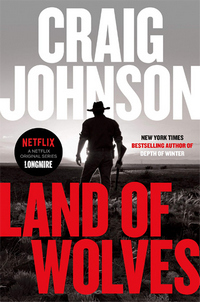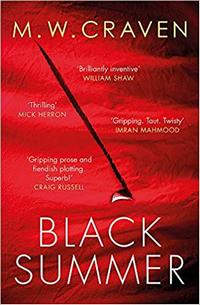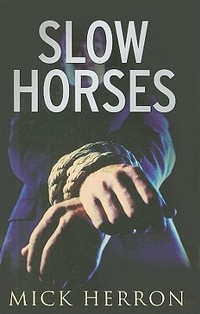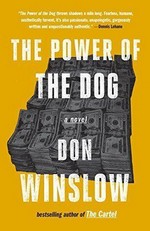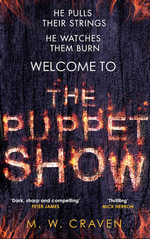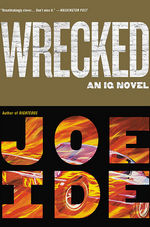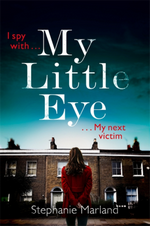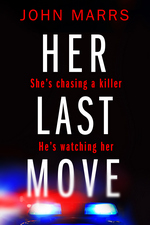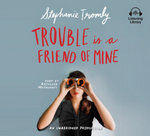I’m very pleased to finally get to post about this book—I had more trouble than I’m used to getting a copy on this side of the pond, so I’m a little late to the party. If my copy of the next installment in this series is as delayed, I’ll probably start looking into emigrating.
by M. W. Craven
Series: Washington Poe, #2
Paperback, 388 pg.
Constable, 2019
Read: August 19 – 20, 2019

The door behind her opened and the huge frame of Edward van Zyl, Director of Intelligence, National Crime Agency, filled the space next to Flynn. His expression was as grim as a cancer diagnosis.
‘We have a problem, Poe,’ he said.
Why am I not surprised? he thought. It’s the soundtrack to my life. . .
What a horrible couple of weeks for D.S. Washington Poe. Six years ago, he began investigating a missing persons case that he changed into a homicide investigation and ended up arresting the woman’s father for murder. He was convicted and received a life sentence. But now, a young woman has come forward claiming to be the not-at-all-murdered woman with a tale of being held captive for years by a rapist she just escaped from. DNA appears to back her claim.
The question now is, why did Poe’s investigation go so wrong? Was it because of a grudge against the father? Was he lazy, or just incompetent? Poe has to wrestle with self-doubt, but he knows he did everything right with this case. Worse than not understanding what happened to get the investigation on the wrong track is the idea that if Elizabeth Keaton is actually alive, then her father, celebrity chef, Jared Keaton, will be released from prison. That thought chills Poe.
How on earth did you describe Jared Keaton to someone who didn’t know him?
Charming. Charismatic. Highly intelligent. A genius chef. No conscience whatsoever. The most dangerous man Poe had ever met. He’d taken an instant dislike to him. He was too superficial, too well groomed, too polished. He’d reminded Poe of a fake Irish pub. Pretty, but of no real substance.
Poe goes on to explain to a detective looking into the claims of the woman claiming to be Elizabeth that Jared Keaton was warm and outgoing in public/on TV, but in reality, was cold and sadistic. Not anyone he wants walking free—especially as he’ll be carrying a grudge.
Poe has mere days to prove this woman isn’t who she says she is and keep Keaton in prison (and save his career, or at least his reputation). A few days later, when Elizabeth goes missing and the evidence points to Poe doing something to her, he realizes it’s worse than all that. He’s in a fight for his freedom. He’s going to need some help, so he calls in his new friend Tilly.
She’d already appeared via videoconference, but Tilly showing up makes all the difference. I was already hooked—riveted, really—by the story, don’t get me wrong, but within half a scene or so of her showing up at Poe’s, I was enjoying the book. It’s a fine distinction, but it was something I registered at the time. Poe’s a strong character, Tilly’s delightful—but there’s something about the combination of the two of them that just really ticks all of my boxes.
Bradshaw had spent most of her working life, and a large part of her childhood, in academia undertaking research in mathematics. As brilliant as she was, until she’d joined the National Crime Agency there’d never been any need to learn the social skills that everyone else took for granted, the skills everyone began learning in the schoolyard.
And, as maths was a binary science with little room for selective interpretation, she had never grasped how to express an argument. Maths didn’t have subtlety. It didn’t need discretion and it didn’t need empathy. It was either right or wrong. Maths told the truth and therefore so did she. It would never occur to her to do anything else.
I’m not sure that Tilly’s contributions are as valuable to this case as they were in the previous novel—not that she doesn’t make many, nor that they’re not important—but the clinchers here come from putting the pieces together as Poe does. This is a Poe vs. Keaton showdown, and the big moments have to come from him.
The two jump into their investigation, reworking the original to the best of their ability, while also examining the evidence and circumstances around Elizabeth’s return and disappearance. How could Keaton be orchestrating all this? How could he be succeeding at it? What’s his end game? Yes, it has to be Poe’s working hypothesis that Keaton’s behind it all. If he starts with a position of self-doubt he’ll never get anywhere—or if he does, it’ll be too late to do any good.
Soon, Poe begins to realize that he’s asking the wrong questions as he’s looking at the pile of evidence. But what are the right questions? Once he starts asking those, we’re off to the races for a great finish. Most good mysteries—especially in the police procedural realm—have this kind of moment, but it’s rarely so self-consciously done. It’s generally the result of the ever-so-convenient new witness coming forward, a forensic test finishing at a convenient time, a piece of evidence the detective should’ve picked up on 150 pages earlier dropping out of thin air or something like that. Here, it’s Poe realizing that he’s not getting anywhere and taking steps to fix that. It’s a minor thing, but it’s this kind of minor thing that when combined all the other minor and major things going on that takes a good mystery novel and turns it into a great one.
There are some great supporting characters—D.I. Flynn isn’t in this book as much as she was The Puppet Show, but she’s still as vital to the plot. Ditto for her boss. Detective Superintendent Gamble returns, as well—as a major supporter of Poe. But the best characters (that aren’t Poe or Tilly) are a couple of new ones. The first we meet is DC Andrew Rigg, who’s the one to initially interview Poe about the original case and prosecution, the returned Elizabeth, and everything else. He’s convinced that Poe botched the initial investigation and is disgusted with him and full of righteous anger (Poe understands and assumes he’d act the same way in Rigg’s shoes), but he’s not a simple two-dimensional antagonist, he’s a good cop and that governs his actions and reactions. The second is Estelle Doyle, a forensic pathology lecturer and a pathologist extraordinaire. She’s brilliant, no mistake—but she’s got one of the darkest and strangest senses of humor, an extreme type of gallows humor. She sets Poe on edge (“incredibly sexy and utterly terrifying”), but there’s a mutual trust and affection, too.
I have to talk briefly about Poe’s springer spaniel, Edgar. I mentioned Edgar in my Favorite 2018 Fictional Dogs post, and he’s back again, bringing a little joy into this pretty dark book. The few paragraphs we get devoted to him when Poe goes to pick him up from his neighbor who was watching him might send a few readers to a breeder or a shelter before they finish the book. But Edgar does more than just bring happiness to the book—there’s a huge chunk of story that works only because of Edgar. I can’t get into it, just take my word for it. Which is just one more of the nice moves that Craven executed in the design of this novel.
You’ve got yourself a very clever mystery—or more, actually, most of it depends on how you want to count them. A fantastically creepy murderer (or is he?), some great supporting characters, and a couple of dynamite central protagonists—what more do you need? How’s about a breakneck pace and tension that doesn’t really let up? The first note I made about this book was, I’m “glad Craven gave us all of zero pages to get comfy before getting all morbid and creepifying.” It’s pretty relentless from there—right up until the last interview, which might elicit a chuckle or two from a reader enjoying watching a brilliant criminal get outsmarted.
But beyond the plot and character, Black Summer features some dynamite writing. A lot of book bloggers, myself included, focus on plot and character—or theme—and we frequently overlook the actual writing—the prose, the execution of the book, that sort of thing. I frequently get hung up on voice, style, and tone and don’t get beyond that when considering the writing. But there was something about the quality of this novel that made me pay attention. This is one of the best-written books I’ve read in 2019. A little sample (I’m restricting myself to one example, and I’m not including as much of this as I want to), from Poe and Tilly going to interview a person connected to Elizabeth’s past in a nasty, “grubby pub called the Coyote” (better known as the Dog):
Poe pushed open the door and stepped inside. His nose went into shock. The Dog smelled worse than a toilet. He didn’t want to know what the actual toilets smelled like. The air was hot and smoky and perfumed with the cloying scent of cannabis. The windows and ceiling were stained yellow with nicotine. Fat bluebottles feasted on something wet and organic on the worn, frayed carpet. Poe’s money was on blood. Probably from the bare-chested man using his own T-shirt to stem the flow coming from what looked like a recent head wound. Despite his injury, he continued to drink and chat with the man sitting next to him.
It was that kind of place.
By the time Craven’s really done describing the place (a little less than a page later), you feel like you’re in the room with them and want to hurry home to take a long shower to get the grime off and to wash your clothes to get the stench out. The first three pages of the novel are enough to elicit a visceral reaction and may make you consider a vegan diet (for at least a few days). Can I tell you exactly what it was that Craven did that others don’t? No. Maybe if I’d gotten around to getting that post-graduate degree I’d have the tools, but I don’t. Still, as Justice Stewart said, “I know it when I see it.” I see it here.
I was blown away by The Puppet Show last year, and Black Summer shows that it wasn’t a fluke. I’m already losing patience for the 2020 arrival of The Curator, and am only mollified by the repackaging/republishing of Craven’s earlier series this winter. If you’re at all inclined to Crime Fiction, you need to track down M. W. Craven’s work in general and Black Summer in particular.
—–









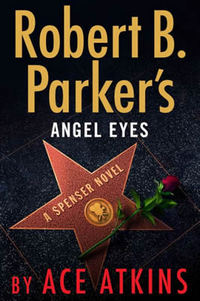


 Dracula: a book with a charismatic villain
Dracula: a book with a charismatic villain